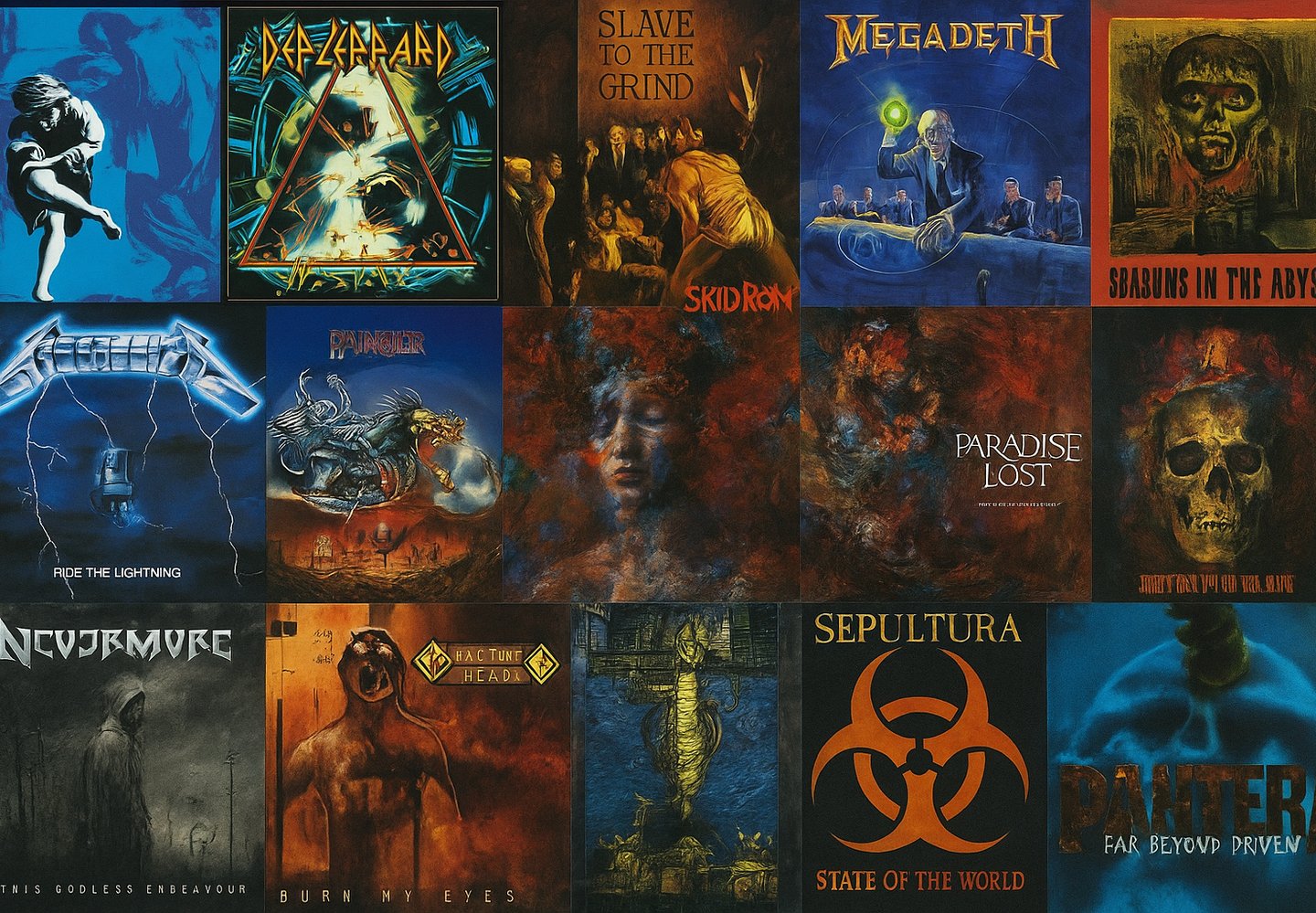Musical Socialization: Chapter One, Formative Years, 1987 to 1991
8/26/20253 min read


My post contentChapter One, Formative Years 1987 to 1994
While I initially started by listening to what was on the charts at the time, my musical socialization most likely began in earnest when I first heard a song that either moved me emotionally or had a substantial enough impact so as to elicit a lasting impression. Although It probably was nothing more than hearing a particular piece of music on the radio or on the accompanying soundtracks of the more popular television series that I was watching, the initial impression nevertheless must have interested me enough to further explore the music I was hearing.
After discovering the classification of the music, I began searching for bands that not only sounded similar but that were also part of the same genre. Due to the geographical location of the country that I was living in, this was easier said than done, particularly as I was far removed from any of the major musical markets such as Europe or America. Initially becoming enamoured with some of the more popular bands of the time such as Bon Jovi, Poison or Def Leppard, it was not long before I discovered genre specific publications which introduced me to bands like Megadeth, Slayer or Metallica.
Through attached samplers that consisted of songs from bands featured in the magazine, these compilations provided an insight into what the artists actually sounded like, while helping me to further expand my musical taste as well as introducing me to new bands and genres that I might have otherwise remained unfamiliar with.
After being able to acquire a multitude of new releases through acquaintances abroad, I gradually managed to acquaint myself with the music of various artists by an extensive process of elimination based on articles, reviews and interviews from the aforementioned publications.
Realising that the music not only spoke to me on a visceral level but that some of the lyrical content had the uncanny ability to describe what I was thinking , I found that I could relate to the themes being covered as they possessed a sense of relevancy that I found authentic and could identify with. The encapsulation of all these factors as well as the music’s ability to act as a vehicle with which to address contemporary issues while simultaneously entertain is what first attracted me to it.
One of the first songs that made me aware of this duality was, ''Peace sells but who’s buying’’, by Megadeth. While the video accompanying the track was entertaining it was the songs musical dexterity and lyrical content that I found intriguing.
Not only was I fascinated by the music but also by the lyrics that had a vague political connotation that I could not fully understand but that I was nonetheless drawn to.
This interest further inspired me to look out for bands with a similar sound aesthetic and lyrical content. In so doing I not only discovered a whole new genre in the form of Thrash Metal but also my personal preference for the importance for the lyrical content of a song.
Feeling misunderstood and alienated, as one often does at a young formative age, the music’s rebellious and transgressive nature gave me a sense of purpose and a feeling of belonging to something greater than myself. As a result, I not only started to follow some of the more unwritten codes of conduct in regard to the appropriate attire and appearances that the subculture was associated with but I also began to fully subscribe to the idea that to be considered a true fan of the genre, solely the heaviest and most underground forms of Metal would suffice.
I soon realized however, that by blindly following the status quo set by the scenes gatekeepers, I was adhering to the same dogmatic rules and regulations that I wanted to escape from in the first place. This awareness not only made me re-evaluate why I got into the music in the first place but also made me realize that thinking for yourself and not following any preconceived rules was the real definition of individuality and the true message behind the music.